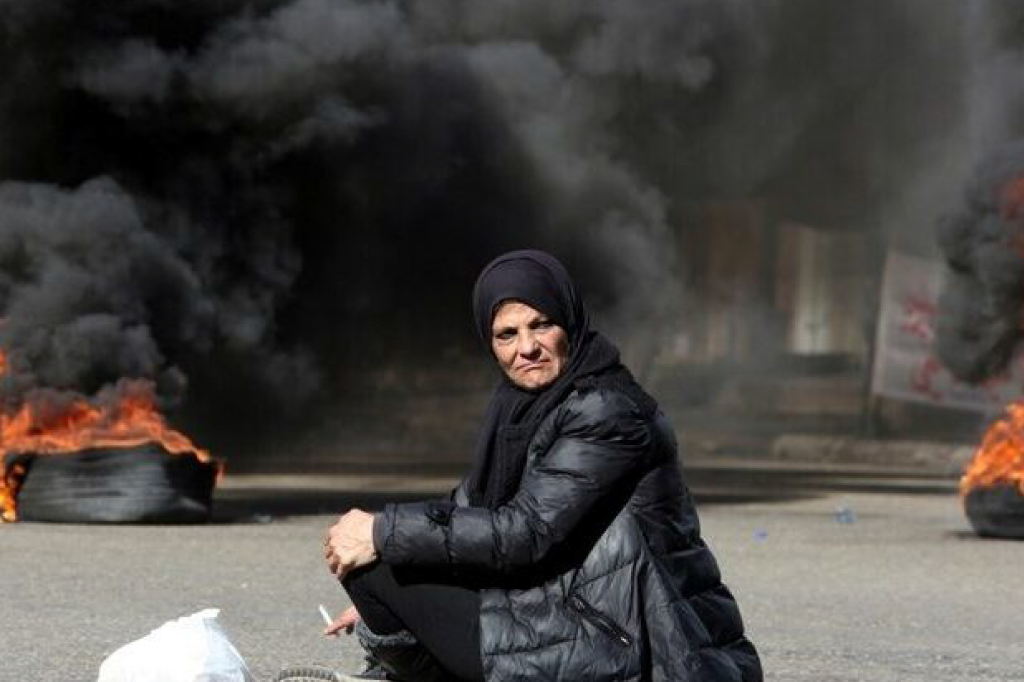Lebanese Citizenship In Crisis
Lebanese people have reached another peak of devastation as the economic crisis badly impacts all citizens from all social classes. Various means are being used to express the accumulated suffering and mistrust among Lebanese. Some people are protesting in the streets peacefully, and others protesting through violence. Some people are active online using all available social media tools to express their grievances, political views, and mistrust in the current political regime. Another margin of people is abstaining from any form of expression in their home with fueled anger and distress from all the implications that come with the fact of being a Lebanese citizen.
We have reached a point where our citizenship is in question. The concept of “citizenship” evolves throughout history with the changes in the norms and values shaping our societies and cultures. According to “Compass: Manual for Human Rights Education with Young People” published by the Council of Europe, the most common understanding of citizenship is the one attributed to the legal relationship between the state and individual that entitles rights and privileges for the individual and imposes duties toward the state. Today, citizenship is not limited anymore to the legal dictum of rights and responsibilities; however, it is posited by various factors and elements related to one’s ownership and sense of belonging to the community. The relationship between the individual and community is shaped by four dimensions: social, political, cultural and economic.
The paper “Information and citizenship: a governance perspective” published by Hector Alejandro Ramos-Chavez introduces new approaches to the concept of citizenship. It goes beyond the individual’s social, political, cultural and economic rights to a multifaceted concept in which individuals play an active role in setting public policies. The paper outlined “three important approaches that shall be addressed to contextualize the citizenship concept. The first is associated with the loss of credibility in the representation once provided by traditional channels of citizen participation, such as political parties. The second is related to the advent of new identities and the struggle for acknowledgement. While the third is correlated with the influence of the mass media in the construction of the citizen.”
As a trial to reflect the evolving approaches and definitions of “citizenship” on the Lebanese context, we pose some questions: What do we mean by sense of belonging? What is the definition of community? Is it the state, the region we are living in, our religion, or sect that we belong to? The Lebanese people have conflicting identities and have lost any trust in their representatives that are elected through the traditional political channels. Moreover, the mass media is playing a destructive role instead of being the main agent of raising awareness and initiating national dialogue on public issues. Social media tools are being used as a means for expression and criticism. They are also being used in the narrow political games for spreading fake news in such political and security circumstances. On the other hand, a wide range of people and age groups access information through the traditional media means, which some become private media companies that can be manipulated by funders and political affiliates. National dialogue and objective facts of public affairs are being skewed to serve the commercial interests of some TV presenters and owners. Every day we record various examples of political talk shows and programs that are fueling citizens with hatred, misinformation and propagandas away from the noble mission of the media in raising political and constitutional awareness, as well as exchanging information.

Access to information is a right and basic principle of democracy at the same time. Today, there are a lot of decentralized protests with different demands and agendas, but there is no consensus on specific demands. Is it constitutional amendments? Is it early parliamentarian elections? Is it formation of a government? Is it economic reforms? Is it political reforms? There are a lot of questions and we hear a lot of answers away from any constitutional consideration due to the role of formal and informal media in Lebanon that lack scientific constitutional approaches. In addition, our governance system lacks mechanisms to engage citizens at the local and national levels in public policies and raise their awareness on public related issues and enhance their sense of belonging. We need to have proper information supply chains to better inform people. This leads to having active people in public affairs capable of changing the flow of incidents and events toward their demands and aspirations away from foreign and violent interventions.
Good governance nowadays is a key element in shaping Lebanese citizenship. Otherwise, the complex crises will impact the citizenship of current and future generations.
Hiba Huneini,
Manager of Youth and Civic Engagement Program
Hariri Foundation for Sustainable Human Development
Source: dailystar.com.lb